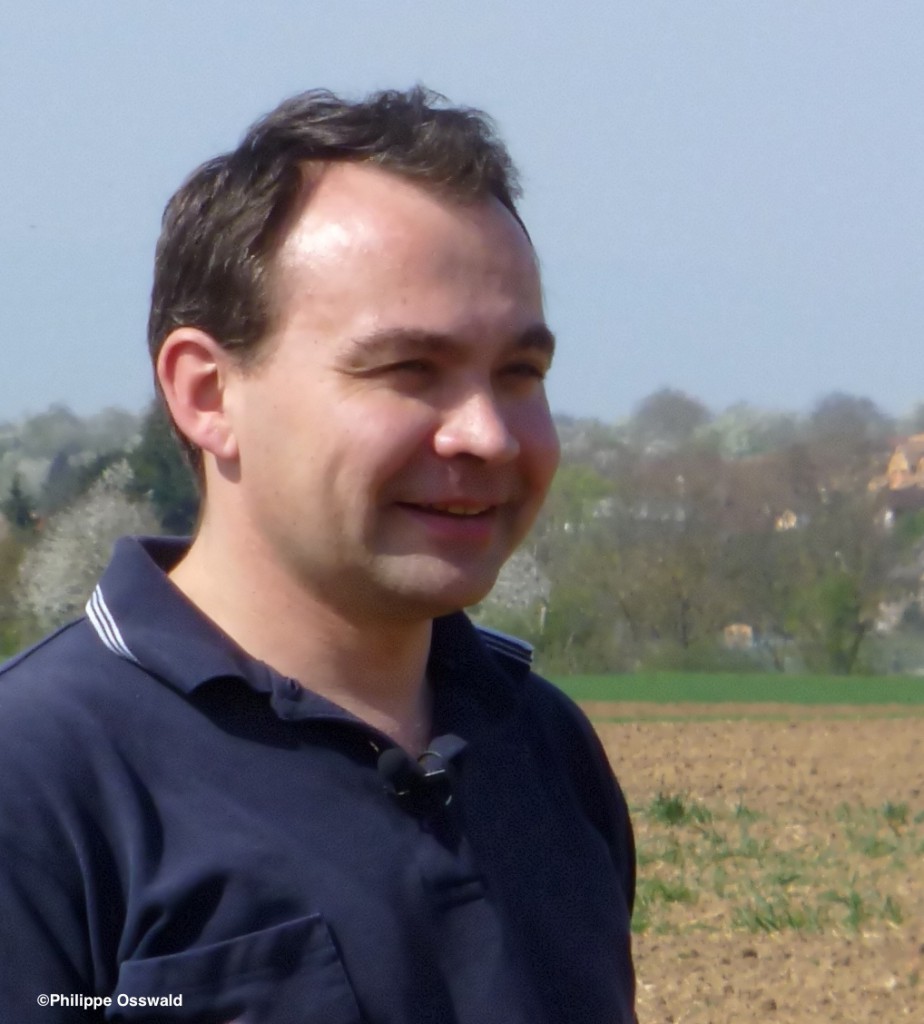
Laurent Fischer A farmer in Lingolsheim
As a farmer, President of the AFSAL* and a member of the Alsace Chamber of Agriculture, your opinion of the agricultural part of the LIFE Alister project interests us.
As the President of the AFSAL, I can’t be everywhere, but I do carefully follow the agronomic trials carried out in the LIFE Alister Project, as well as the activities put in place by the CUMA de la Plaine in 2014. This CUMA manages the material acquired through the LIFE programme, which can be used by farmers who want to test or use this innovative equipment. I, myself, have used no-till seeding** for the past ten or so years. If protecting the European Hamster can change agricultural practices whilst preserving production, this is pertinent. I’m personally interested in CIPAN’s *** trials after the wheat harvest, as I’m directly concerned by this. My farm is in a hamster zone, meaning that I have wheat crop constraints. I’m on the lookout for solutions to cover the ground quickly after my harvest and trials on vegetation cover are on-going on the LIFE Alister parcels.
You said that you’ve used no-till seeding for over ten years. At that time, this was very innovative.
It still is, though the idea is gaining ground. For forty years, agricultural techniques targeted plants and about ten or fifteen years ago, we started having a look at the soil. We realised that we didn’t know too much about soil and since then, a lot of research has been done on this subject. After having used this for ten years, I can confirm that no-till seeding is very positive. I’ve got sandy soil, so the organic matter rate has always been low. No-till seeding has vastly improved its structure. The most interesting outcomes are a regular yield, as well as a reduction in irrigation needs. Today my crops weather the hot spells much better. And if there’s flooding, we’ve noticed that the water recedes more quickly. You know that farmers need to check what works or not on their own plots.
Does “protecting the environment” mean anything for farmers?
Our jobs as farmers are constantly changing: after the War, we had to produce a lot to feed the populations, and then there was over-production. Then with free markets, we tried to slash our prices, but that was not the best strategy, especially in Alsace. We have to ty to produce quality, whilst respecting biodiversity. That’s what consumers who have no idea any more about what they’re buying now want. They have to be able to trust us.
Would a “hamster friendly” label make any sense?
People are expecting a lot from environmental protection and animal well-being. This is a challenge that the LIFE Alister programme could try to tackle!
* Farmers and Wild Animals in Alsace
** No-till seeding: a technique consisting in working on the soil without tilling it (direct seeding) on all or some of the parcels on a farm. No-till seeding is not an occasional practice on the parcel, but a continuous one during the whole time that crops are rotated. The positive effects of no-till seeding on the soil can only be seen after a few years have gone by.
*** A Nitrate Trap Intermediate Crop

